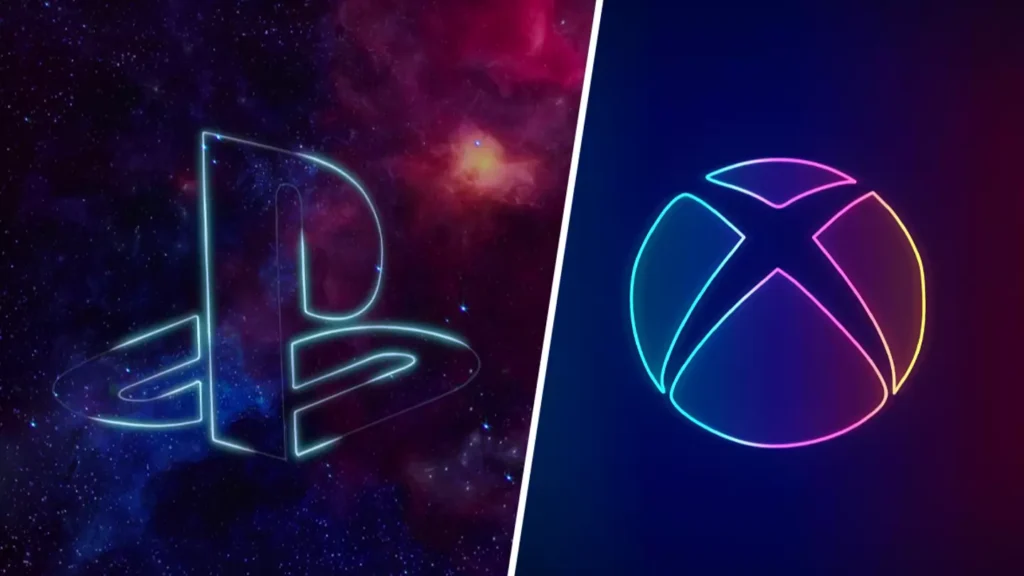It appears that the practice of restricting Platform-exclusive games to only one platform is nearing its end, which is long overdue for consumers.

Platform-exclusive games are coming to an end, and we’re here for it. Although some significant intellectual properties will probably remain exclusive to one console or PC, most of them will be accessible on any platform that you prefer. This development is undoubtedly a positive thing, and the following reasons elaborate why…
The following is a concise timeline of the history behind platform exclusivity
Platform exclusives have been integral in the video game narrative for decades and contributed to determining which console prevailed during each generation.
In the 1980s, console exclusives were inaugurated as Atari obtained exclusive rights for popular arcade games like Pac-Man and Space Invaders on home consoles. The intention was to coax regular arcade enthusiasts into purchasing a gaming device they could enjoy from their couch without having to feed coins continuously into an actual machine. Ironically, nowadays you can acquire miniature arcade machines created specifically for household use.
During the late 1980s and early 1990s, Sonic and Mario became iconic characters that were exclusive to their respective platforms. While Nintendo had already established itself with Mario, Sega introduced its own rival character in Sonic. To play the popular Sonic games, one needed to have a Sega system which resulted in millions of console purchases for this very reason.
When the PlayStation/Xbox era began, platform exclusivity gained even more significance. Sony and Microsoft introduced original intellectual property to boost sales while also offering substantial sums of money to third-party developers and publishers for timed exclusive deals.
The competition between various types of exclusives continues till this day.
Platform exclusives are dying out
Fortunately, there is a shift taking place. In February 2024, Microsoft unveiled in an Xbox Wire announcement that four of their console exclusives would also become available on the PS5 and Switch consoles, with additional titles to come soon.
At present time, Hi-Fi Rush, Pentiment, Sea of Thieves and Grounded have been confirmed as games making their way onto other platforms.
Microsoft’s Phil Spencer predicts that exclusive games, available on one hardware platform, will become less significant in the gaming market for five or ten years. The shift aims to learn from experiences, respond to customer needs, and meet the needs of players and creators. Spencer also emphasized that the industry no longer relies on one exclusive game for sales.
The trend of moving away from platform exclusives is not limited to just Microsoft and Xbox. The gaming industry seems to be embracing a philosophy of being neutral towards platforms, marking the beginning of an era known as “platform agnosticism.” Essentially, gameplay itself takes precedence over hardware used for playing games.
Sony’s focus on exclusive content during the PS4 era has been underwhelming, despite COVID-19 delays and multi-year release delays. Nintendo has also ventured into smartphone game releases featuring beloved characters like Mario and Pokemon, but not on competitors’ consoles.
The Trend of Disappearing Platform Exclusives
Why are platform exclusives fading away? The clear reason is that game developers have found better alternatives. It’s more beneficial to make titles accessible across all platforms rather than limiting them to just one system, as emphasized by Phil Spencer – a credible source on the matter.
The reasoning behind Microsoft’s strategic decision is apparent. In the competition between PS5 and Xbox Series X, the former reigns victorious; even Nintendo Switch has outperformed Xbox Series X|S in sales thus far, without any indication of wavering dominance.
As a result, not only have Microsoft’s exclusive offerings failed to affect retail course positively but also its revenue potential suffers from limited software distribution opportunities among consumers.
From a business standpoint, it is more sensible to release games on multiple platforms in order to generate revenue from sales due to the usual loss incurred from selling gaming hardware.
The surge in mobile gaming is undeniable, as an increasing number of individuals seek entertainment through smartphone games. Similarly, the growth in popularity of Steam and PC gaming also contributes to a broader audience that makes limiting game accessibility to one platform less desirable. Doing so would artificially constrain its potential reach.
The primary factor fueling this shift is Xbox Game Pass and similar gaming subscription services offering cloud-based gameplay. Essentially, they eliminate the necessity of owning a game console.
Microsoft stands out in this aspect, thanks to the inclusion of Xbox Cloud Gaming in Game Pass Ultimate. Despite being in its beta phase as of now, subscribers are able to access a multitude of Xbox games on various non-console devices such as phones, tablets, PCs and even VR headsets or smart TVs.
Why Are My Happy That Exclusive Platform Are No More
Although platform exclusivity has become the norm for gamers, not everyone is content with it.
The reason why I opted for PlayStation rather than Xbox was due to my preference for Sony’s exclusive titles. However, if Microsoft had made their original IP accessible on Playstation, they would have gained profits from me purchasing games such as Halo, Gears of War and Forza among others.
Rephrased: The strategy of limiting certain games to a single platform is detrimental to consumers because it compels them into purchasing more than one console merely for playing particular titles.
Although I acknowledge why this pattern has existed for many years when makers aimed at establishing their platforms as the key option, it’s time we embraced greater inclusivity in gaming. A shift towards platform agnosticism would be an excellent first step towards achieving that goal.

